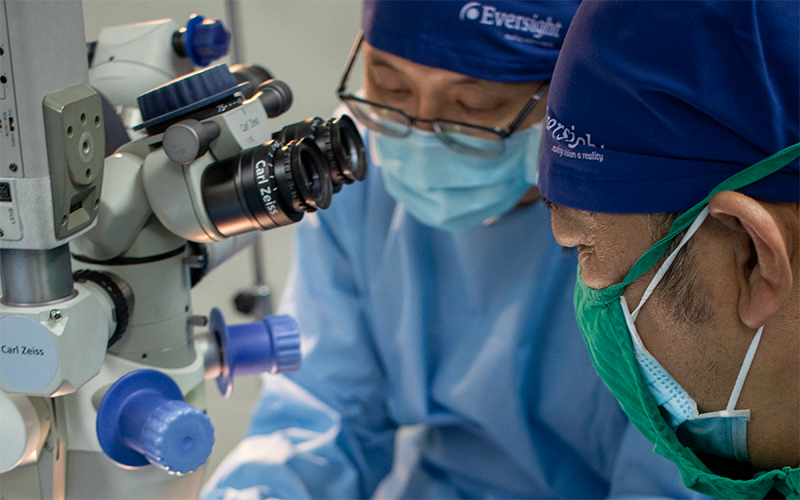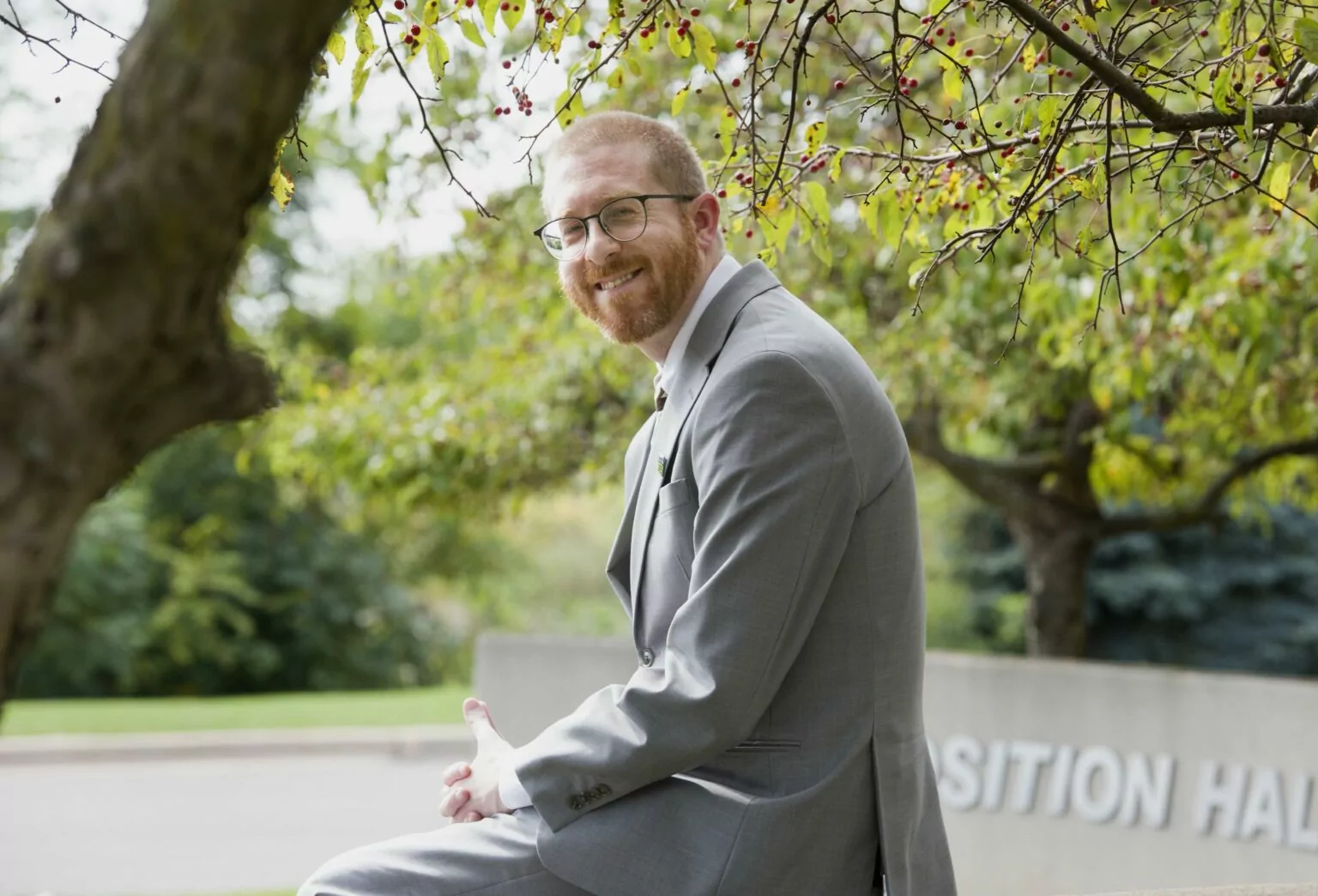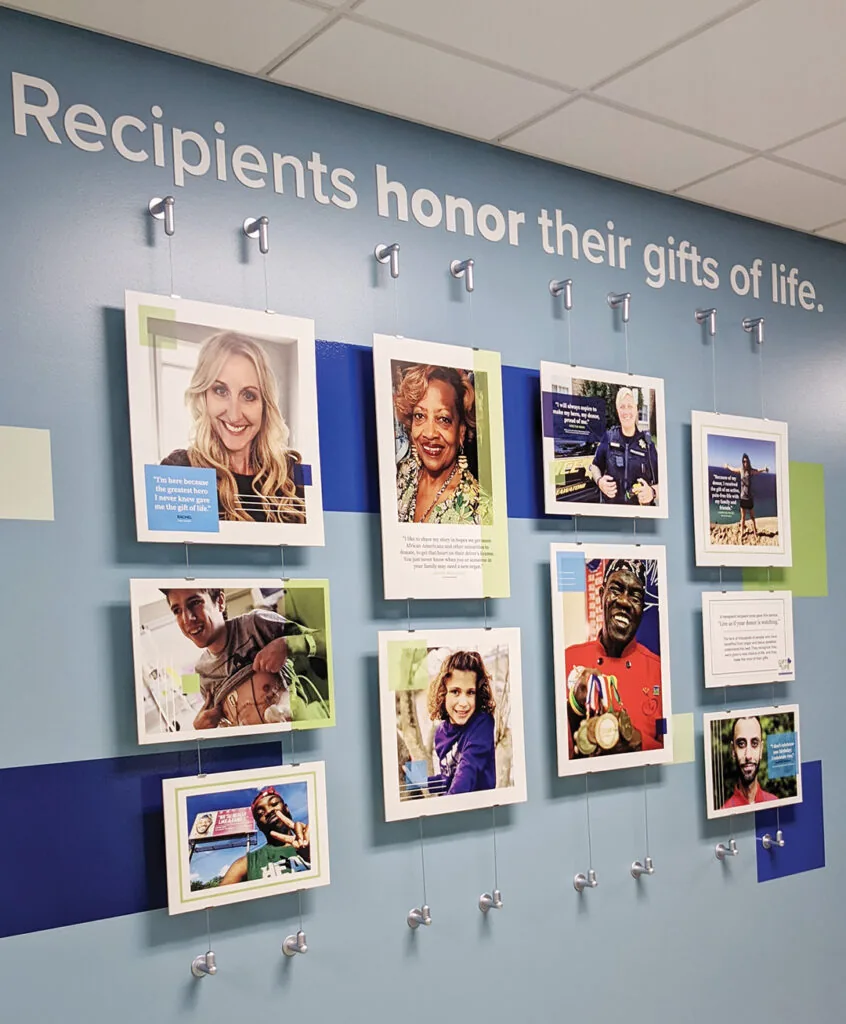I’m here because 32 years ago I received a life-changing gift.
Sight is an easy thing to take for granted and, like so much in life, you don’t realize how much you rely on it until it’s gone. It’s certainly not something I was thinking about when I was 6 years old, playing outside with my friends, learning to read or playing with my Ghostbusters action figures.
But slowly, it began to get harder to see what was going on at school, and I couldn’t clearly see the faces of my parents, teachers and friends.
My whole world was starting to go blurry. Doctors told my parents an infection had left a scar over my cornea, the outer covering of the eye, making it difficult for me to see.
At just 6, I had to learn to live with a visual impairment.
If my story had gone a different way, I’d still be living with that impairment today, and my life would be very different. But I’m here because a young man made the decision to be a donor.
It’s because of him, his selflessness and generosity of spirit, that I received a vision-saving corneal transplant and was set on the path that brought me here today.
It was through his cornea that I studied and did research to get my doctorate in neuroscience at the University of Michigan, and now I’m fortunate enough to work at Massachusetts General Hospital in Boston, where I am on a research team seeking treatments for Alzheimer’s disease and other dementias.
I spend all day working with brain scans, a job I could not do without my sight. I’ve also been fortunate to have opportunities to travel for my job. Through my donor’s cornea, I have seen the Great Wall outside of Beijing, the Coliseum in Rome and the Botanical Gardens of Singapore.
In January, my wife gave birth to our first child, and I could see my newborn son, so tiny and perfect.
My vision was blurry again the day he was born, but that was because I had tears in my eyes.
And now every day, no matter how hard my day has been, I get to see my son smile at me, and it’s the absolute best feeling.
When we talk about the gift of sight, that’s what we’re talking about — the ability to find our purpose in life and to see the things that fill us with wonder, whether it’s halfway around the world or every day right here at home.
That’s the gift my donor gave me.
For more information about eye donation and transplantation, go to eversightvision.org.
 Facts about eye donation
Facts about eye donation
Eversight is a global nonprofit eye bank headquartered in Ann Arbor, working to restore sight and prevent blindness through the healing power of donation, transplantation and research.
Previously known as the Michigan Eye-Bank, Eversight is one of Gift of Life Michigan’s closest partners.
Together we promote the power of organ, eye and tissue donation. Eversight recovers eyes and corneas for transplantation and research, helping restore sight to thousands of patients who suffered from corneas damaged by injury or illness.
Here are some key facts about cornea donation.
Q: What is a cornea?
A: The clear, dime-sized tissue found at the front of the eye. It functions like a window, allowing light to pass through the eye. The cornea does not affect eye color, so transplant patients will retain their original eye color after their surgery.
 Q: What is a cornea transplant?
Q: What is a cornea transplant?
A: A cornea transplant is a surgical procedure that replaces a diseased, damaged or infected cornea with a healthy, donated cornea. Corneal transplantation is the most frequently performed transplant procedure. It’s also the oldest; the first successful human cornea transplant was in 1905.
Q: My vision is bad. Why would Eversight want my cornea?
A: Your corneal tissue may be completely healthy even if your eyesight is poor. Many causes of vision loss do not affect the cornea. Donated corneas that are not suitable for transplantation can, with authorization, provide much-needed information for researchers or for those being trained in corneal tissue recovery, preservation, evaluation and transplantation.
Q: Who can be an eye donor?
A: People of all ages should consider themselves potential donors. Your medical condition at the time of death will determine what can be donated. If corneal tissue is not transplantable due to age or medical condition, the donation can, with authorization, be considered a gift for education and research involving glaucoma, diabetic retinopathy, macular degeneration and other sight disorders. These studies advance the knowledge of causes and effects of blinding eye conditions and lead to new treatments and cures.
Q: How do I consent to donate my eye tissue?
A: Become a registered donor by joining the Registro de donantes de órganos de Michigan, which gives first-person authorization to donate your eyes, organs and tissue. But be sure to discuss your decision about donation with your loved ones.









